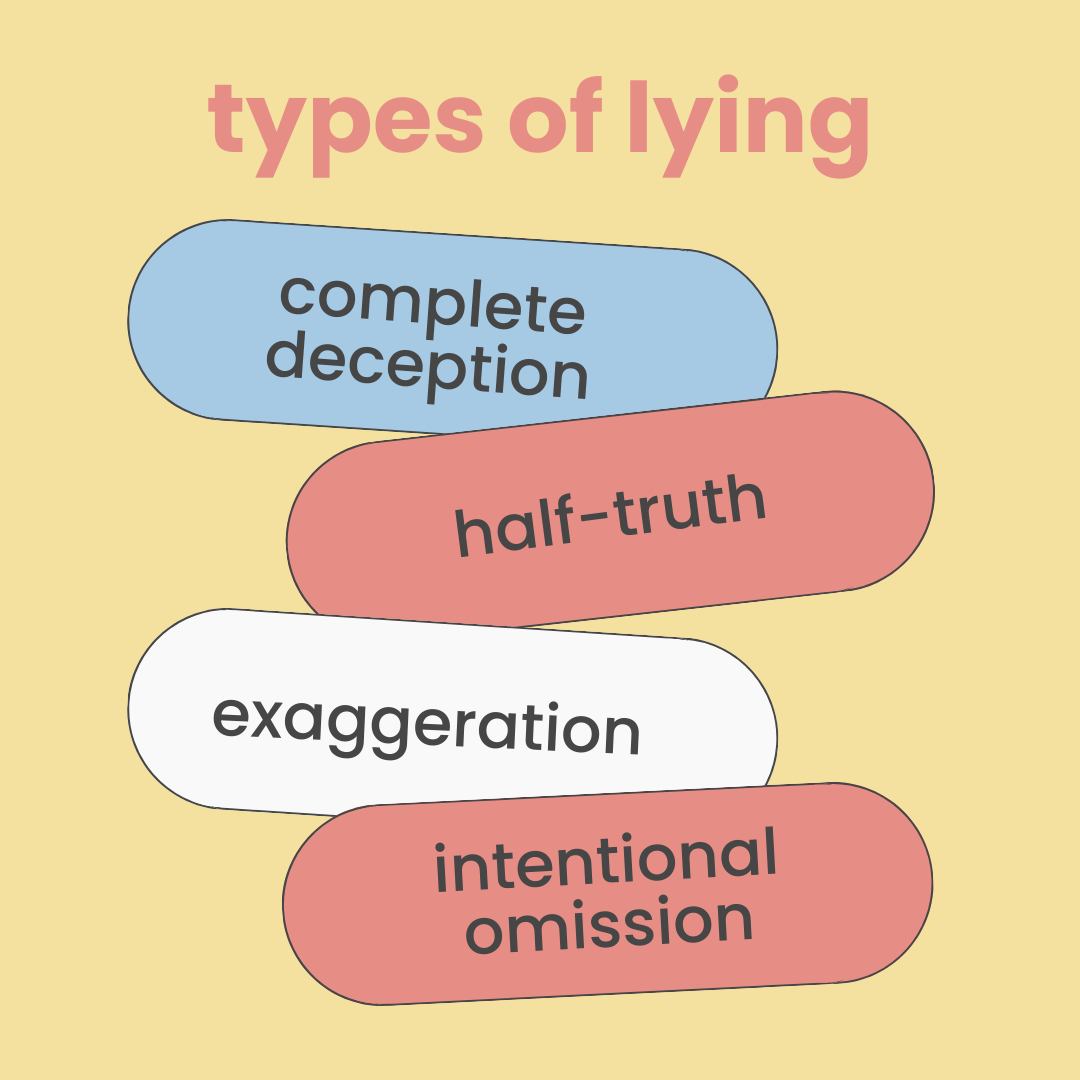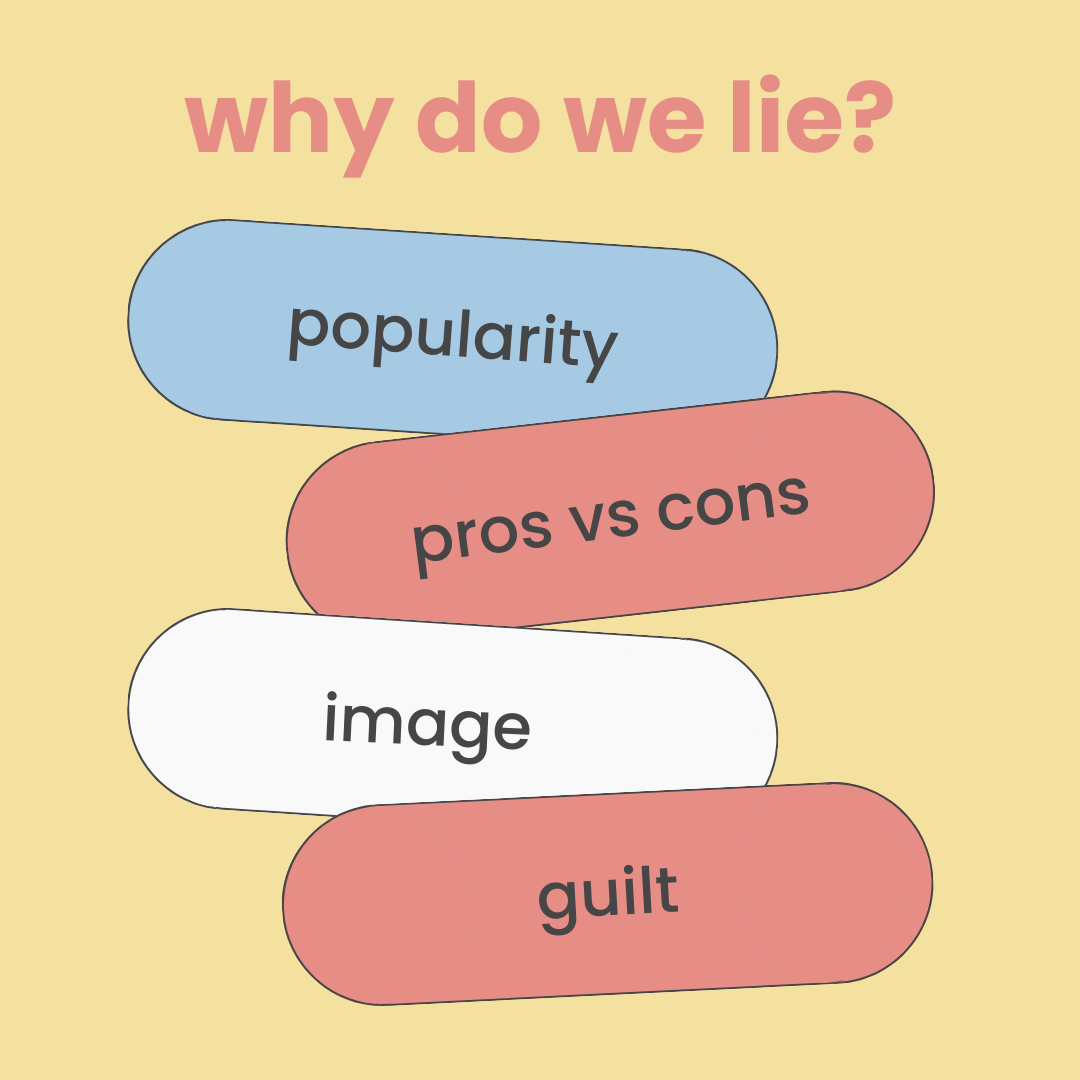
Why do we lie?
It’s estimated 10-20% of what we say is a lie 👀

Quick summary 📝
1️⃣ Lying is common, with estimates suggesting that 10-20% of what humans say is in some way a lie
2️⃣ Lies can range from complete deception to exaggeration or intentional omission
3️⃣ People lie for various reasons, including popularity, personal gain, self-image, and guilt
4️⃣ While honesty is generally encouraged, there are complex situations where consulting trusted individuals can help navigate the right course of action
5️⃣ Keeping a journal can be helpful in reflecting on lying behaviours and finding ways to improve
--------------------------------------------
Lying is extremely common – researchers have estimated that about 10-20% of what humans say is in some way a lie 🤯 So if lying is so normal, why is it so bad? luna’s here to break down the topic of lies and how it affects us day-to-day ✨
What exactly is lying?
Lying is essentially telling someone something which you know not to be true 🗣️🚫 Many people think of lying as extreme and complicated, without any truth at all. But, in reality, lies can be small details of stories or situations which are small and don’t always affect the outcome of the lie 🤷♀️ Often, lies are just exaggerations 📈
Although lies are told quite a lot, it can be really hurtful to find out someone has lied to you 😔
What types of lying are there?
- Complete deception: this basically means there is absolutely no truth in what’s being said 🤨
- Half-truth: some of the story is true, but some is also made up 🤔
- Exaggeration: adding made up details to things that are true 🧐
- Intentional omission: to omit something means to leave something out, which means that this kind of lie is where details are intentionally left out 🫢

Why do we lie?
Psychological science has shown that some of the most common reasons people lie regularly are:
- Popularity: lies can often make stories more interesting, and people who tell extravagant stories may do so to be more likeable (until people realise it’s not true!) 👋
- Pros vs cons: if someone believes they have more to gain from telling a lie, they’re more likely to tell a fib 🏆
- Image: if someone knows that telling the truth will make them look bad (or feel bad), this could damage their self-image🪞
- Guilt: sometimes, people know that the truth would make them feel bad 💔 Humans are really good at believing stuff if they say it enough. So by lying, it can also protect their opinion of themselves 💭

Is lying wrong?
Lying is extremely complicated 🥴 but researchers are always learning more about it 🙌 It’s something that’s very human, and lots of people lie regularly sometimes without even realising 👀
On the whole, luna suggests being honest 💚 That being said, sometimes telling the truth could hurt someone’s feelings and this is where it gets more complex 🤔 In these cases, consulting a trusted friend or family member can be very helpful in making the right call – they’ll know you best, and can help you navigate through this.
If you find yourself lying a lot and are feeling bad, remember that this is a natural normal reaction – but that doesn’t mean you can’t take steps to lie less 💯 Keeping a journal can be a really great way of reflecting on situations you lie in and figuring out how to improve on that next time 💭
luna hopes you’ve learned a thing or two about lying, and if you have done something you wish you hadn’t, remember we all make mistakes and most often they are forgiven – so don’t be afraid to own up 😊

